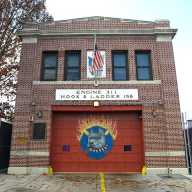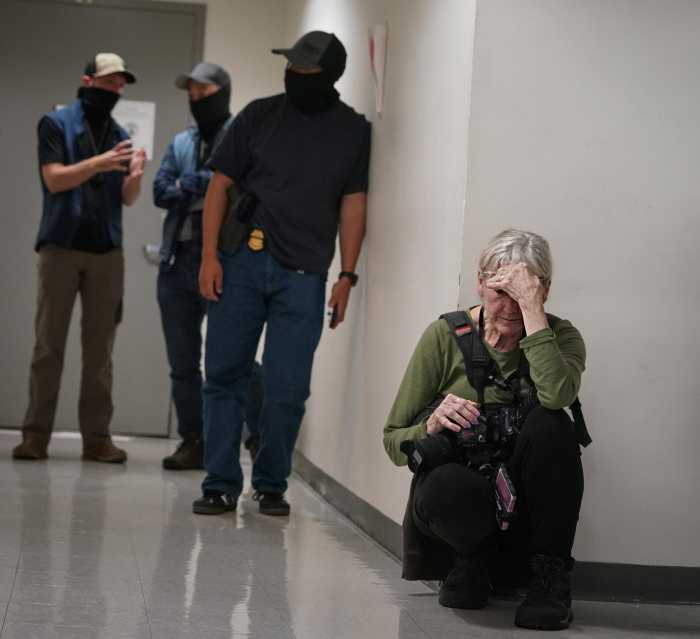Queens Councilmember John C. Liu spoke to residents in the Country Club on Monday, February 2, discussing issues such as Ponzi schemes and the city’s budget.
Liu, who started his council service in 2002, is the councilmember for District 20 in Queens, which includes Flushing, Queensboro Hill, Mitchell Gardens, Kissena Park, Harding Heights, Auberndale and parts of Whitestone. Along with chairing the Transportation Committee, he is a member of the Consumer Affairs; Contracts; Education; Health; Land Use; Landmarks, Public Siting & Maritime Uses; Lower Manhattan Redevelopment; and Oversight and Investigations committees.
“In the City Council and down at City Hall there is a great deal of stuff happening, mostly with the budget,” Liu said as he began to speak in the VIP Room.
Although Liu said dealing with the Ponzi scheme orchestrated by Bernie Madoff falls beyond the jurisdiction of the council, he said that, due to his financial background, he could still speak about such issues. Before joining the council, Liu worked in the financial services management consultant sector.
“When you talk about evil, this is as evil as things get,” Liu said of the Madoff scandal.
Along with the issue of people having lost money, Liu said that there is also a question of the type of judicial system the country has, particularly since Madoff is only under house arrest.
“It’s a double standard that’s really giving people a bad taste in their mouth,” Liu said.
Liu then spoke about a couple of the different ways Ponzi schemes are conducted. One method involves a promise to an investor that they will get extraordinary returns. Eventually there is not enough money to cover all of the promises. However, by that time the word has already spread and many people have invested.
Another method that Liu detailed is known as a boiler room broker scheme. In this, a broker will call many individuals, telling half that a particular stock will go up and the other half that it will go down. They continue with this pattern to get people confident enough to invest with them.
In talking about protection against such scams, Liu described the Securities Investment Protection Corporation as being the FDIC equivalent for stocks and mutual funds. However, he said that the problem is the federal government “just completely fell asleep.”
Liu also said that such problems are not inseparable from the mortgage crisis. He placed the blame on the previous White House administration, saying that they had a laisser-faire approach to the free market where they felt the market would take care of itself so government regulation or intervention was not needed.
Following his discussion of Ponzi schemes, Liu opened it up for questions from residents.
To begin with, Liu was asked about term lengths. He said that the typically length for a councilmember is four years, although once every 20 years there is a requirement that a term be split into two two-year terms.
After noting that all New York City offices are for four-year terms, Liu said, “The public advocate is an office that I will be seeking this year.”
Time was also spent talking about the state and city budgets.
“The fiscal condition of New York State is actually in worse condition than New York City,” Liu said. “Part of that is because, in New York City, we have squirreled away some money in earlier years knowing that one day there would be a day of reckoning.”
In speaking about the city’s budget, Liu said that “not all the priorities are in the right place.” He said that a called for reduction of 15,000 school teachers would result in larger class sizes.
Liu said that, because of the amount of diversity in the classrooms, it takes more time and effort to reach students. He also said that by having fewer teachers there would be a disservice not only to the children but to the community’s future.
“There’s going to be a question of priorities over the next few months,” Liu said.
Also in regard’s to the city’s budget, Liu said that Mayor Michael Bloomberg had been discussing “restructuring all the senior centers and services in New York City.”
“That I objected to strenuously because it was very clear to me it was not about restructuring these services so that more seniors could be served,” Liu said. “It was really a budget cut.”
Liu also criticized hundreds of millions of dollars being used on building “legacy projects.” Using the example of taxpayers subsidizing the cost of ballparks, he said that such venues will bring money into the city whether or not taxpayer funds are used.
Another resident questioned Liu about the municipal parking lot located on 37th Avenue in Flushing. He said that it is “partly a debacle” because the city has not invested enough in it to maintain the parking lot.
Liu also talked about the city’s desire to sell the parking lot. He said that he insisted that, if the lot was sold to a private developer, the result would have to include more spaces than what are currently there.
The congestion of the downtown Flushing area, which Liu said “has become far more congested,” was also discussed. He said that his own area has been rezoned in order to protect the quality of life and residential character of the neighborhood.
However, in commercial areas, Liu said that there needs to be economic development in order create more jobs to accommodate the population growth. Also, he said that the crowdedness shows that people want to be there.
To see Liu’s visit to North Shore Towers, look for it on the in-house channel.































